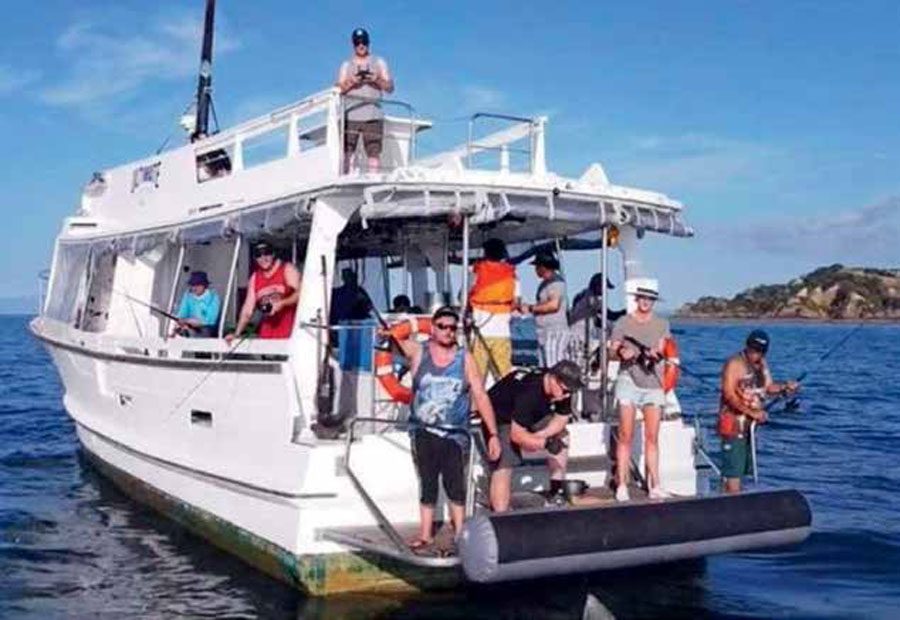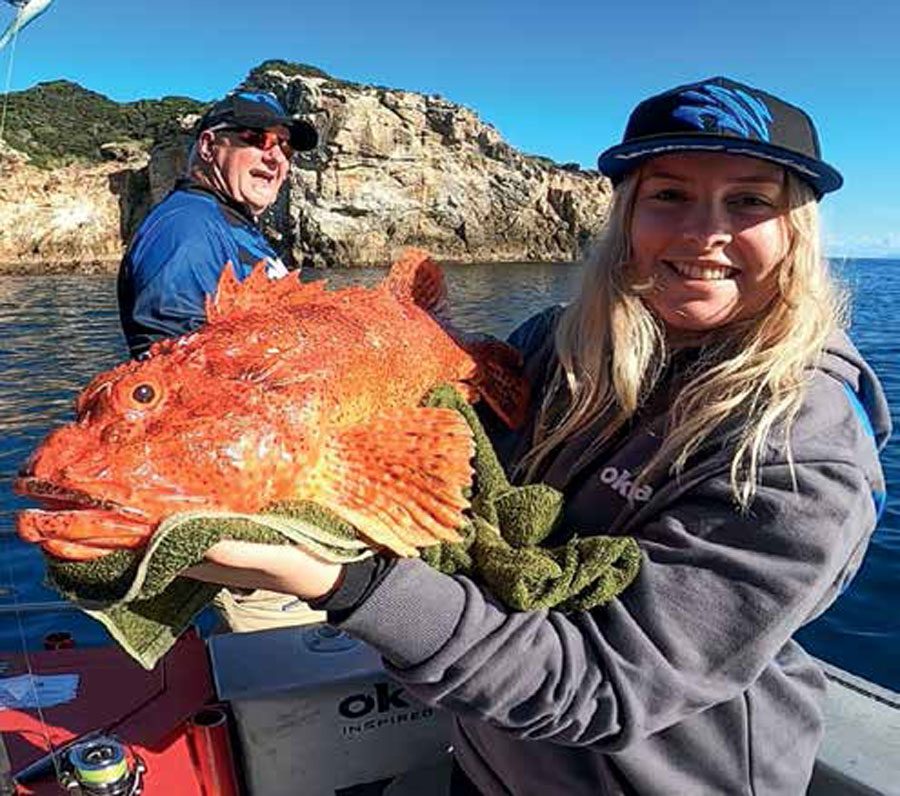

Ultimate Charters is entering its fourth year of operating under the Department of Conservation and Auckland Council’s Pest-Free Warrant programme.
Each year Ultimate Charters hosts thousands of people from all over New Zealand – and the world – aboard its vessels in the Hauraki Gulf. Guests enjoy fishing, cruising and exploring, and sometimes set foot on one of the Gulf’s many pest-free islands.
Therefore, as part of its business operations, Ultimate Charters implements a robust biosecurity system designed to detect and stop pests both above and below the waterline. The business also takes the opportunity to help its passengers to understand a little of how and why they can help to protect the Hauraki Gulf Islands from unwanted and destructive pests like rats, skinks and even the pathogen causing kauri dieback.
Ultimate Charters was one of the first commercial operators to obtain a Pest-Free Warrant three years ago, well ahead of it becoming compulsory in 2024.

“Around the time I took over the business, I was looking at opportunities to promote the Hauraki Gulf and all there is to see beyond putting down a line and catching fish,” says operator Simon Brady.
“We are allowed to visit these places, so we want to do it by the book, minimise our own impact, and make our guests conscious of the impact they could have just by visiting.”
“We feel it’s a privilege that we get to share this backyard with people. It’s pretty unique to have islands literally on the doorstep of the city centre, all within a stone’s throw of where people live and accessible to so many. So much of it is untouched. On a journey from Westhaven out to our regular fishing grounds, there is a very good chance we’ll see dolphins and gannets feeding, sometimes as close in as Rangitoto Island. Over the last month on around 75% of our trips, people would encounter whales. Often our clients have never seen them before.”
“The first thing we do is make people aware of the risk. It starts with a conversation about why the islands are pest-free and the impact they can have.”
He says some charters, such as overnight trips to Aotea Great Barrier Island, have a higher risk profile as guests will spend time ashore. Overnight bags are checked, food containers are sealed, and footwear is checked and cleaned of soil.


“People get it immediately,” he says. Simon also says that biosecurity awareness was also new thinking and a learning curve for some of the established skippers and crew, but they had done a great job of adopting the change.
“They had done trips to the outer islands for a long time but didn’t necessarily think about things like giving shoes a scrub.”
When it comes to the recently discovered exotic seaweed, Caulerpa, Simon says they are aware of what they can and can’t do and reduce the risk by following the rules and regularly checking their anchor chain and equipment for signs of the weed.
Hull hygiene is a no-brainer from a cost perspective for a commercial operator, he says.
“Every decision we make in the business is a balance between profitability, customer experience and sustainability. When it comes to boat maintenance, the fact is having a dirty bum means you are slower and burning a lot more fuel to get where you are going, as well as increasing the risks of spreading unwanted nasties.”

Ultimate Charters’ boats are therefore on a tight regime for hull cleaning and engine servicing. The bigger boat is hauled out four times a year at Orams Marine, and because it is used most days – it does 240 trips a year – does not accumulate much biofouling.
“It is a no-brainer to be involved with the Pest-Free Warrant. Costs are nominal and the biosecurity team at Auckland Council make it easy. It’s not daunting or time consuming at all, it’s very efficient.”
Commercial vessels must obtain a Pest-Free Warrant by 2024 to continue operating in the Hauraki Gulf.
Warrants are designed to reduce the risk of pest invasion and spreading it to the Hauraki Gulf Islands. They are required under the Auckland Regional Pest Management Plan 2020-2030 (RPMP) and are free. Help is available from Auckland Council to complete the process. BNZ




